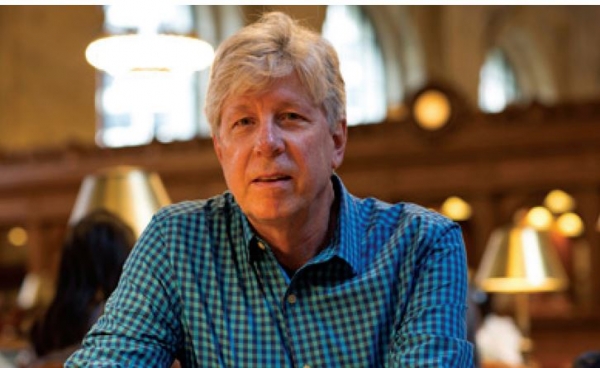SIM News

FOR SUCH A TIME AS THIS...
03/04/21
For the 2020 SIM scholarship season, candidates were required to answer one essay question, across all award categories, a question inspired by the writings of the late rabbi and family therapist, Edwin Friedman:
The late Dr. Edwin Friedman, family therapist, and rabbi, recalls that phone calls and letters to him multiplied after his initial writing, Generation to Generation. Almost all of them were from a position of defensiveness from leaders in the face of complaints and chaos in their respective systems. Finally, he said, “I stopped listening to the content of everyone’s complaints and, irrespective of their location or their problems or the nature of their institution, began saying the exact same thing to everyone, ‘ You have to get up before your people and give them an “I Have a Dream” speech.’”
What is your “I Have a Dream” speech or sermon? Offer your articulation of a dream you hold for the life of the church and/or some aspect of the future of the faith. Where do you discern the active invitation of the Holy Spirit to Episcopalians? What compels the ministry for which you are preparing? What needs to be celebrated and amplified, and what challenges in the church and larger culture need to be addressed? Remember, this is an exhortation crafted to inspire and motivate your audience to join with you in making this vision a reality.
In proposing this question, SIM hoped to provoke imagination with regard to seminarians’ anticipated leadership in parishes, schools, and other contexts of ministry. And several rose to that challenge beautifully. While the “I Have a Dream” idea may strike some as fatuous and off-key given our current situation, it is perhaps the appropriate move when events seem to be saying, “…and I have a nightmare.” The church, in this time, is asked to appreciate and re-imagine the profound gravitational shift that is everyone’s inheritance given the onset of COVID-19, not to mention the racial and cultural pandemics that followed.
That gravitational shift has exposed many things that we might otherwise have bypassed under more “normal” circumstances – not least that we are inescapably bound together even in our tactile or ideological exile from each other, that there is a mystical body of humanity, in health and sickness, in living and dying, in sadness and joy, to which we are all membered. The human condition, says Thomas Keating, is that one inescapable spiritual community. If catastrophe offers any gift, it may be the jarring introduction to this one, inescapable communion and one that, with our very efforts to be socially distant, continues to be built by our compassion for one another.
Leadership under these conditions holds a similar prospect. The lines of the hierarchy are softened; the lateral quality of a shared human condition opens greater possibilities for sharing leadership and mission than perhaps at any other time in recent history. The late lessons of 9/11, of hurricanes Katrina and Sandy, and other disasters and their respective theatres have been academies of a different kind of leadership earlier in this century, one informed by and awakened to the gifts of everyone. Because of COVID-19 and its economic fallout, another mega-school of leadership has opened – for congregations and their leaders, for schools, for civic leaders, for all of us in just about every aspect of social interaction imaginable. In these circumstances, can the church possibly become the “school of love” that theologian Brian McLaren envisioned? And can our love cross boundaries that need badly to be breached?
From SIM’s perspective, emerging patterns of leadership seem to come from those locally situated leaders who, within their congregations and ministries, decide to step into a largely undiscovered country of virtual convenings, anywhere from meditation/ centering prayer groups and reflective corners to more formal varieties of worship to poetry circles and online conversations.
We have convened several of our own, encompassing such questions as:
• What will it take for the Episcopal Church to become an anti-racist organization?
• How do faith communities benefit from becoming more reflective?
• How do the varieties of contextual ministry portend the shape of a New Church for a New World?
These and other conversations about food scarcity and building healthier food systems, bridging social gaps in times of disaster and economic emergency, and other topics that embrace the church’s corporal presence to a world in great need is our earnest toward shaping a collective imagination of a church that becomes known, eventually, for its innovation and adaption – as much as it has been known for its great cathedrals, its academic institutions, and former predominant cultural presence. In our cultural dark night, we may become unmoored from our obsessions with self-protection and, with lighter hearts perhaps, re-engage the kenotic lessons of the New Testament – like Christ, empty ourselves of the prestige that no longer serves us in navigating our times, and consider taking the lowest place (Luke 14: 10) in order to serve others at the banquet of life. At the very least, consider this current season as an exhibition to that end!
The virus and its effects will be with us for a long time, with – needless to say – manifold economic, social and political effects that do nothing less than profoundly re-shape our everyday realities and not least through the actual cost of human lives, of those we love. By the time this reaches our readers, that cost will be only too evident. Does this catastrophe also bear with it an invitation – one from the Holy Spirit who does not bring suffering but is that life presence that accompanies us in it, who is “that dear freshness, deep down things” as Gerard Manley Hopkins asserts, and who is, also, as my colleague Dr. Cowart would say providing a timely “cosmic kick in the a**” to get us to actually behold where we are?
